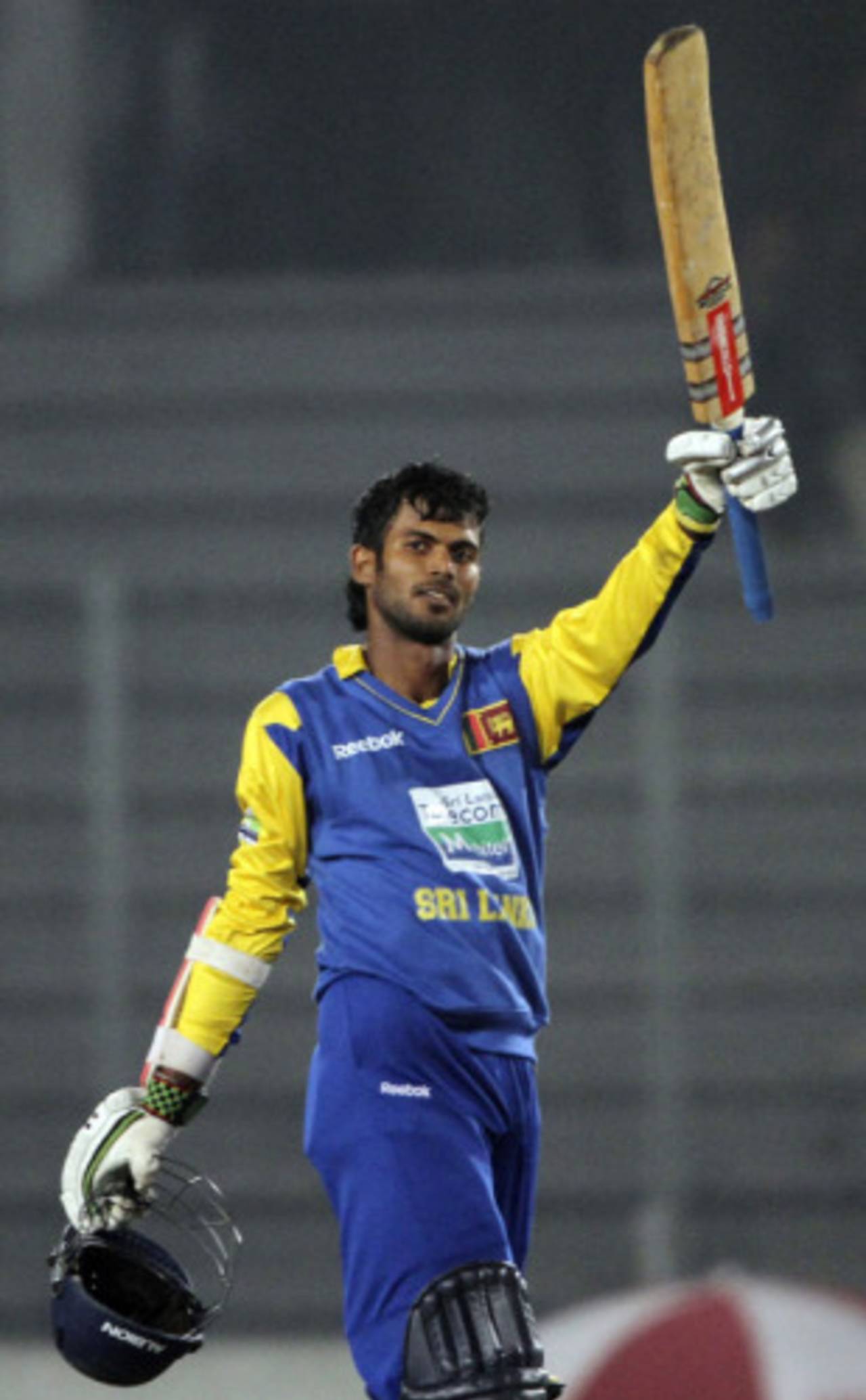It's amazing how quietly
Upul Tharanga has displaced Sanath Jayasuriya from the opener's slot. It's almost a bloodless coup assisted by the team management who want to look at the future beyond Jayasuriya. It wasn't far back that Tharanga himself was struggling to put bat to ball and was dropped. Interestingly, his exit paved the way for Tillakaratne Dilshan to cement his place as a dashing opener and now it's his turn to re-establish himself at the top.
He looked into his past to redesign his future. In 2005, life was
looking up for Tharanga post the dreadful tsunami; he had started to rebuild his house which was washed away during the tragedy, made his debut and became the first batsman in the history of the game to have scored five hundreds in 30 ODIs. Suddenly, the lights went out.
It was the common problem that ails a sportsman: fear of failure. Runs trickled in at a premium post the 2007 World Cup and the pressure slowly built on Tharanga. He would scratch around for a while, increasingly looking more and more vulnerable. "I was just trying to survive for five or ten overs and then try get some runs and it obviously didn't work," he says. "I had put too much pressure on myself after World Cup and that's where I made the mistake."
There were people who helped out in pointing the mental error, such as Kumar Sangakkara and Mahela Jayawardene, but it was Chandika Hathurusingha who really helped Tharanga turn around. "He was the A team coach then and I worked a lot with him. He is the guy who told me to play a natural game and not worry about getting out," he says. "He said it looks like I am just going out there to survive and not trying to score runs.
"I changed my approach; I decided that I am just going to get out and play my normal game, not get worried about whether I will get dropped now if didn't score runs in this match. If the bad ball is there to be hit, I will hit it."
It helped that Tharanga could hark back to the memory of doing well at the international arena in the early part of his career to convince himself that he was good enough for this level."I had played earlier for two years for Lanka, so I knew I was good enough," he says. "My plan was simple: If I get runs for the A team, I would get a chance definitely. All I had to do was to sort out the mental side of things and my approach to batting. I made runs and then I waited for my opportunity. I didn't get a look-in for two or three series but then I got a chance in the series against India. And I took it."
It sounds deliciously simple - score runs, get into form and wait for the selectors to call you - but the fact was that he had to wait for either Jayasuriya or Dilshan to lose form so that he can get a look in. And when Jayasuriya started to struggle, Tharanga grabbed his opportunity. It must have been a big deal for a man who grew up watching Jayasuriya bat to displace him from the team but Tharanga doesn't want to see it that way.
"No one can replace Sanath. He is a legend," he says. "I have got a chance now and I am just focused on my batting. He was also happy when I scored runs in India and congratulated me."
Tharanga also believes that batting with Dilshan has helped him during his comeback. "The bowlers are concentrating on how to get him out and pressure is off me. In fact I think I get more loose balls now as the bowlers are under pressure after bowling to him. So it has become easy for me."
It wouldn't have hurt that his captain now is Sangakkara, for both go back a long way. It was Sangakkara who helped him by giving SLR 50,000 (US$ 440) and some bats and gloves to get him up and running. "I decided that I can't do anything about it [the devastation caused by the tsunami]," he says. "Yes, I lost my house and everything but I wasn't the only one guy who lost things. There were one million people who suffered from that. There was no use sitting and crying about the loss of things and blaming life. We had to move on. It's like starting a new life."
This is Tharanga's second coming not only in life but in cricket as well. He has started well but he knows that his future will depend on how consistent he can become.
Sriram Veera is a staff writer at Cricinfo
